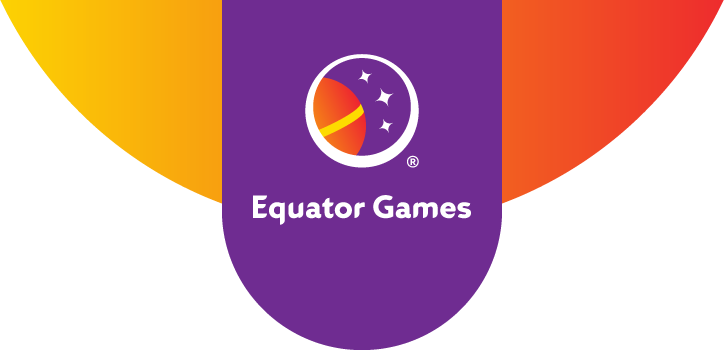Fairness arises when people are uniformly subjected to a set of rules that aim to bring clarity to a situation, are made in good faith, and respect the interests of both the individual and the group.
An un-fair introduction
During a marathon a runner takes a shortcut and reaches the finish line first. A politician contesting an election wins the most votes, but is declared ineligible by a crooked elections board. And while playing a game of football a player grazes their hand against the ball before slamming it into the back of the net, but refuses to acknowledge the mistake.
Fairness is most often contemplated when it is perceived to be lacking. If a person believes they have been treated unfairly, they may feel hurt or angry. If a stadium of football fans detects unfairness, they might resort to hooliganism. And if a large section of a nation’s citizens feels it, that could lead to civil unrest. That is to say, fairness matters a great deal to the smooth functioning of relationships between people.
General ways to tackle unfairness
Rules
The first tool humans created to resolve disputes was a body of rules. On the societal level, we call these laws (when the government creates them) and norms (when habits, traditions and conventions define them). Rules, both formal and informal, set the guidelines for how to behave. At the simplest level, if a person follows the laws and norms, they should not expect to face any negative consequences for their actions. But if they violate them, a corrective step will be taken that discourages or negates their behavior.
Of course, the laws and norms themselves may not even exist to ensure fairness; sometimes it is quite the opposite. So let us look at the other tools we use to bring about fairness in a seemingly unfair situation.
Mediation
Mediation is an approach that sometimes works to resolve disputes. Through it, two or more groups of people (the aggrieved parties) sit down with an impartial party (the mediator) to discuss the given scenario as they see it. The mediator asks clarifying questions, seeks all of the information they deem relevant, and then does one of two things. First, they may attempt to help the aggrieved parties reach a resolution on their own that everyone finds tolerable. Or second, they independently determine what steps need to be taken to resolve the matter.
Vigilantism
A third approach, and one all too often taken by people, is to fight perceived unfairness with unfairness. We see this when people “take the law into their own hands”, called vigilantism, by independently attacking perceived wrongdoers and doling out punishments as they see fit, without the restraint of normal legal proceedings slowing them down.
Changing mindsets
There is yet a fourth way to deal with unfairness, which can be summarized as “changing the system”. By that we mean the dismantling of institutions, practices and mindsets that bring about unfairness in the first place. It is the most difficult of the four approaches to implement, but if successful tends to be the most durable of the bunch.
Imagine a world in which athletes would never think of stooping to cheating to improve their performance, even if it meant losing. Or a world in which politicians honored the voice of the electorate and abided by the results of a vote, even if it meant leaving office. Or a society that shunned the mistreatment of groups of people based on their perceived “differentness”, and decided to change. Happily, there are stories such as these that can be told, and they number among some of our greatest human achievements.
How does unfairness enter a game?
A game can be unfair generally in one of three ways: 1) if a player cheats; 2) if a player violates the unwritten rules of “fair play”; and 3) if there is a large gap in the skill levels between players.
Cheating
Cheating happens when a player attempts to break the rules of the game in secret in order to gain an unearned advantage.
Being a bad sport
A player violates the notion of “fair play” when they follow the rules per se, but do something outside of the strict confines of those rules to claim an unearned advantage. For example, this might include attempting to distract an opponent with something unrelated to the game that causes the other player to lose their focus. Or it might mean refusing to acknowledge an unforeseen setback faced by a player that is not part of the action taking place within the game, but which might impact the affected player’s performance all the same.
The concept of fair play is fascinating in its own right, and is closely connected to the ideas of honor and mutual respect. In general, a player who is practicing fair play will refuse to take opportunities that might put them ahead in the game if it means doing something that is considered personally dishonorable or disrespectful of their opponent.
Playing against much more (or less) skilled opponents
Unfairness can also occur if the gap in skill levels of the players is so great that the contest is a foregone conclusion before it even starts. Unlike with cheating and violations of fair play, this kind of unfairness is not malicious, and can simply arise when players of different abilities choose to compete with one another. The unfairness is usually evident beforehand, which means all players have a chance to acknowledge the unequal circumstances at the outset.
How can we promote fairness in games?
- Learn the rules and actively participate in ensuring they are followed
- Promote a culture of honesty and a commitment to fair play
- Use handicaps to even out differences in skill levels
There are two ways to counter cheating: 1) by educating ourselves about the rules of the game and collectively monitoring the gameplay; and 2) by creating a culture among players that shuns cheating as an unacceptable and unworthy act. The first approach is the more visibly employed, and we do this by educating ourselves about the rules, calling out suspected violations, and placing impartial observers (referees, for instance) near the game’s center of play to scrutinize the action and intervene as needed.
But what of building an attitude among players that rejects cheating outright? The success or failure of this approach is closely tied to the cultural norms and practices that are endemic in a player’s community. If winning at all costs matters more than the manner in which a person wins, then it may be difficult to dissuade such a person from breaking the rules if doing so can bring about the desired result. However, if a person is taught to believe that cheating is deplorable, that it tarnishes any victory and makes a mockery of the competition, it is unlikely such a player will entertain cheating, no matter how desperate the situation may get. Fair play ties in closely with this outlook as well.
So what of the third case, where a skill level disparity threatens to remove any possibility of an evenly pitched match? Again we have two means at our disposal: 1) implement a handicap; or 2) do nothing whatsoever. When a handicap is employed, the superior player is intentionally given a calculated disadvantage that aims to bring their new, partially hobbled level of performance in line with that of their opponent. This can be done in a variety of ways, such as by giving the weaker player a head start or an initial number of bonus points.
But often, the best thing to do is nothing. When weaker players compete against those who are better, they may not win, but they will certainly be tested in ways that a player of similar skill cannot challenge them. In this way the weaker have a chance to become stronger, and to grow in ability.
Finally, sometimes it is strategically useful to take no action even in cases where another player is known to be cheating or seeking some unfair advantage. It takes some amount of effort and concentration to carry out a cheating scheme; that itself just might cause the offending player to distract themselves into trouble. Additionally, if a cheater thinks their deceit will pay off, they may suffer an inflated sense of confidence, which can be used against them.
Fairness matters
Whether in life or in the realm of a game, fairness matters, and it is always worthwhile to take steps that promote it. If instead we had an unlimited ability to tolerate unfair practices, only the most cunning and despotic among us would lead, and only the craftiest and underhanded would win. Thankfully, we have no appetite for that. It’s just not fair!



